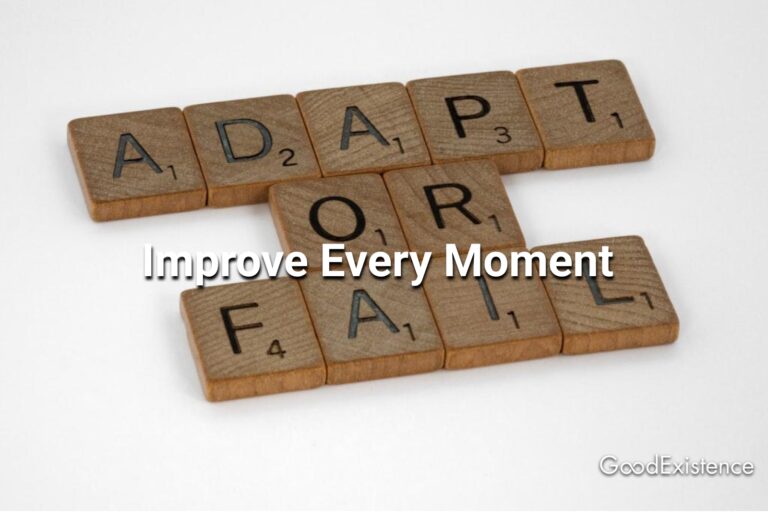
Trusting yourself feels impossible when you’ve let yourself down time and time again.
I know that feeling deep in my bones. For years, I was my own worst enemy. My days were a cycle of junk food, video games, and broken promises. Every morning I’d tell myself, “Today is the day I change.” And every night, I’d go to bed feeling like a failure, having done the exact opposite. How can you trust someone who constantly lies to you, even if that someone is you?
Rebuilding that trust felt like an impossible climb. But it wasn’t. It started with one small, honest step. And then another. If you feel stuck in that same place, I want you to know there’s a way out. It’s not about a giant leap of faith in yourself. It’s about building a bridge back to yourself one small plank at a time. Here are the 10 tips that helped me do it.
1. Keep Your Word to Yourself
This is the foundation of everything. Think about it. You trust people who do what they say they will do. The same rule applies to you. Start treating the promises you make to yourself with the same seriousness you would a promise to your closest friend. If you tell yourself you’re going to wake up at 7 a.m. then get up at 7 a.m. No excuses. No snooze button. You are showing yourself that your word is bond.
2. Start Impossibly Small
When I decided to lose weight, I didn’t promise myself I’d run a marathon. I would have failed on day one. Instead, I promised myself I would walk for just 10 minutes. That’s it. It was so small it felt almost silly. But I could do it. And I did. An impossibly small promise is one you can’t help but keep. Keeping that promise is a deposit in your self-trust account.
3. Celebrate the Small Wins
After my 10-minute walk, I didn’t just move on. I took a moment to acknowledge it. I’d think, “Hey, you did it. You said you would and you did.” This isn’t about throwing a party. It’s about giving yourself a quiet nod of approval. Celebrating small wins proves to your brain that you are capable of success. It builds momentum. Those small wins are the fuel that powers you toward the big ones.
4. Be Brutally Honest
You can’t fix a problem you refuse to see. For a long time, I made excuses. I wasn’t addicted to gaming; I just needed to relax. I wasn’t binge eating; I just had a big appetite. Trust begins with honesty. Look in the mirror and be real about your situation without judgment. Say, “This is where I am. I don’t like it. And I am responsible for changing it.” It’s a hard conversation but a necessary one.
5. Forgive Your Past Self
You cannot build a new future if you are constantly punishing yourself for the past. I used to beat myself up for all the years I wasted. It just kept me stuck. You have to look at your past self with compassion. That person was doing the best they could with the tools they had. Thank them for getting you this far. Forgive them for their mistakes. Then, let them go so you can become who you are meant to be.
6. Build a Dependable Routine
Trust loves predictability. When I was living in chaos, I couldn’t trust myself because I had no idea what I would do from one hour to the next. A simple routine changed everything. It wasn’t a rigid prison. It was a supportive structure. Knowing I had a time for work, a time for prayer, a time for exercise, and a time for rest removed the guesswork. It created a reliable rhythm for my life that I could count on.
7. Listen to Your Gut
We all have that inner voice, that gut feeling. For a long time, I ignored it. I let my cravings or my desire for comfort make my decisions. Learning to trust myself meant learning to listen to that quiet, deep-down knowing. When something feels off, it probably is. When a choice feels right in your spirit, even if it’s hard, it’s probably the one to make. Start paying attention to it. It’s your God-given compass.
8. See Failure as Data
You will mess up. I still do. The old me would see a mistake as proof that I was a failure. The new me sees it as data. If I slip up and eat something unhealthy, I don’t spiral. I get curious. Why did that happen? Was I stressed? Was I unprepared? Failure isn’t a verdict on your character. It’s a lesson pointing you toward what you need to adjust.
9. Speak to Yourself with Respect
How do you talk to yourself in your head? Is it a constant stream of criticism? You wouldn’t stay friends with someone who spoke to you that way. You deserve the same respect from yourself. When you catch yourself being harsh, stop. Reframe it. Instead of “You’re so lazy,” try “You’re feeling tired today. Let’s figure out a way to get this done.” It’s about shifting from being your own worst critic to being your own supportive coach.
10. Anchor Yourself in Faith
This was the biggest piece for me. I realized that my trust in myself didn’t have to come from my own limited strength. As an Orthodox Christian, my trust is ultimately rooted in my trust in God. I am not the captain of my own ship, steering through a meaningless ocean. I am a part of God’s plan. This belief gave me a profound sense of purpose and stability. When I felt my own trust waver, I could lean on my faith. It’s a foundation that never shakes. Knowing that my life has a purpose beyond my own fleeting desires gave me the strength to make choices that honored that purpose.
Building self-trust is a journey not a destination. It’s a daily practice of showing up for yourself. It’s about proving through small consistent actions that you are reliable you are capable and you are worthy of your own trust.
So let me ask you: What is one small, almost silly promise you can make to yourself and keep today?





